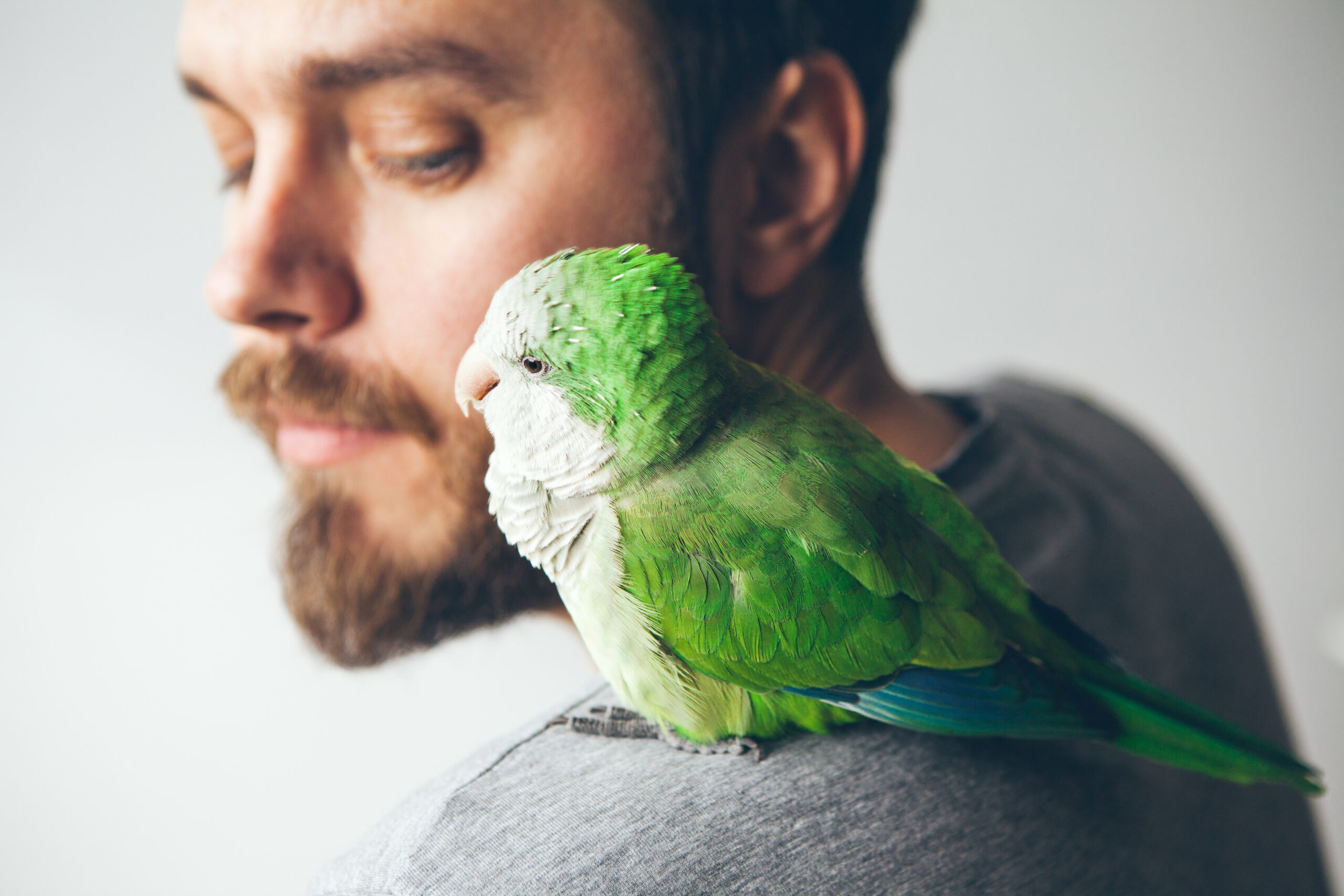Birds are masterful at hiding illness. It is part of their survival instinct. In the wild, showing weakness can make them a target. Unfortunately, this means that by the time a pet bird shows signs of being sick, it can already be very serious.
I have seen this play out far too often in the clinic. A parrot who seemed a little “off” suddenly crashes. A cockatiel who was just a bit quiet yesterday is now fluffed up, lethargic, and fighting for its life. The truth is, bird emergencies move fast, and minutes matter.
That is why I created a simple but essential tool: the Avian Emergency Checklist. Every bird owner should have this knowledge ready before an emergency strikes. Preparation can be the difference between life and death.
Know the Signs: When to Take Action Immediately
The first and most important step is to recognize when your bird needs help. The following signs are red flags that your bird is in distress and requires urgent care:
- Sitting fluffed up and not moving
- Labored or open-mouth breathing
- Tail bobbing while breathing
- Lack of appetite or refusal to eat for over 12 hours
- Vomiting or regurgitation that does not stop
- Bleeding (from nails, beak, or anywhere else)
- Discharge from the nose or eyes
- Sudden collapse or weakness
- Changes in droppings (color, consistency, or frequency)
- Seizures or uncoordinated movements
If your bird shows any of these signs, do not wait. Call your avian vet immediately. Birds can decline rapidly, so trust your instincts and act quickly.
Create an Emergency Kit for Your Bird
Just like you might have a first aid kit for yourself or your dog, your bird needs one too. Here is what I recommend keeping on hand at all times:
- Styptic powder (for bleeding toenails or minor injuries)
- Cornstarch (a backup to help stop bleeding)
- Clean towels (for wrapping and restraint if needed)
- A small heating pad or hot water bottle (to maintain warmth during illness)
- Travel carrier (clean and ready to go)
- Pedialyte or avian electrolyte solution
- Feeding syringe or dropper
- Contact information for your avian veterinarian and the nearest emergency clinic
Store all of this in one place so you do not have to scramble in a crisis. Every second counts when your bird is struggling.
Find Your Nearest Avian Vet Now, Not Later
Not all veterinarians are trained in avian medicine. If you own a bird, you need to establish care with an avian-experienced vet ahead of time. Have a wellness exam done when your bird is healthy. This gives the vet a baseline to work from if things go wrong later.
I also recommend asking the clinic about their emergency procedures. Some clinics refer after hours to an emergency center. Others handle urgent cases directly. Know who to call and where to go before you are in a panic.
Handle with Care: Safe Transport During an Emergency
If your bird is in distress, you will need to transport them to the vet quickly and safely. Here is how:
- Use a small, secure travel carrier. Line it with a soft towel. Do not use loose bedding that can block breathing or get tangled in feet.
- Keep them warm. Sick birds often become hypothermic. Cover part of the carrier with a towel to help retain heat and place a warm (not hot) water bottle under part of the carrier if needed.
- Minimize stress. Avoid loud noises and sudden movements. Drive calmly and talk softly if it helps keep your bird calm.
- Call ahead. Let the clinic know you are coming. This allows them to prepare and gives you a chance to ask if there is anything specific they need you to do before arrival.
Prevention is Still the Best Medicine
While it is crucial to be prepared for emergencies, the real goal is to avoid them whenever possible. Here are some of the habits I recommend to help keep birds healthy:
- Annual wellness exams with an avian vet
- A balanced diet based on species-specific recommendations
- Fresh water and a clean cage daily
- Opportunities for exercise, flight, and mental stimulation
- Daily observation of your bird’s behavior, droppings, and appetite
Remember, you are your bird’s best advocate. The more familiar you are with their normal behavior, the faster you will recognize when something is off.
Be the Lifeline Your Bird Deserves
Being a bird owner is a joy, but it comes with unique responsibilities. Birds are delicate, complex, and incredibly good at masking their pain. The more proactive you are, the better chance you have of saving your bird when something goes wrong.
I have had the heartbreaking experience of telling an owner that they were just a few hours too late. I have also seen the relief and gratitude in the eyes of someone who noticed the signs early, took action, and gave their bird a fighting chance.
Do not wait until it is too late. Print this checklist. Make your kit. Find your vet. Your bird depends on you to be ready.
